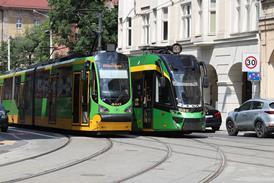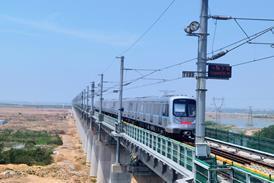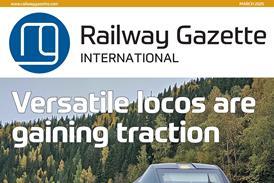IRAN: International players are targeting emerging opportunities as the Iranian market opens up to greater international participation.
Kazakh national railway KTZ has a number of industrial subsidiaries involved in a range of supply activities, including the production of rolling stock derived from international designs. Through its Tulpar-Talgo joint venture with KTZ, Spanish company Talgo is supplying 603 coaches to KTZ as part of a fleet renewal programme, with 436 produced since Tulpar-Talgo opened a factory in Astana in 2011.
Speaking at the Rail Expo 2016 trade show in Tehran, Tulpar-Talgo Executive Technical Director Nurlan Esimkulov told Railway Gazette that while the company’s main goal is to renew KTZ’s inter-city fleet, it is also looking at export opportunities, with Iran a possible export market for vehicles suitable for running on 1 435 mm gauge tracks. According to Esimkulov, Tulpar-Talgo is ‘in the final stages of making a commercial offer’ to Islamic Republic of Iran Railways for rolling stock to operate on the main line between Tehran and Mashhad, where electrification work began in February this year for completion by the end of 2019.
KTZ’s electric locomotive joint venture with Alstom, EKZ, is also looking at possible export orders for its KZ8A freight and KZ4AT passenger loco designs, building on the contract it won in May 2014 to supply 50 twin-section locos to Azeri national railway ADY from its factory in Astana. EKZ’s General Director Bernard Paille said that while it is ‘having an initial look at Iran’, the company’s main focus is on winning orders across the 1520 mm gauge networks of Central Asia, where ‘many Soviet-era locomotives will become life-expired in the next five years’.
Although establishing EKZ’s Astana factory took ‘a bit longer than we planned’, Paille believes its locomotive designs are now ‘proven in the harshest climatic conditions’. The next milestone in the development of the business, which is 50% owned by Alstom with the remaining shares split equally between KTZ and Transmashholding, will be the start of local production of main transformers which is expected by the end of 2017. These are currently sourced from Alstom and ABB sites in France and Switzerland.
Among established western suppliers, Bombardier Transportation sees ‘clear similarities’ between Iran’s railway expansion programme and that of neighbouring Turkey. Earlier this year, Bombardier finalised a high speed trainset production agreement with Turkish firm Bozankaya, and it says it is considering partnership opportunities in Iran as well. According to recently-appointed Chief Country Representative for Iran, Dieter Brandenburg, the company hopes its Traxx locomotive family could win orders in Iran ‘where a proven product traced back to an OEM is a clear advantage’. However, its initial focus is on hauled passenger stock and possible tenders for metro cars in Tehran.
Addressing the inaugural Oil Rail Ports conference taking place alongside the exhibition, Iranian Industry Mining & Trade Minister Mohammadreza Nematzadeh suggested that RAI’s locomotive fleet would double in size by the end of the decade, as the rail seeks to tap into opportunities in the oil transport and Eurasian transit freight markets.




















